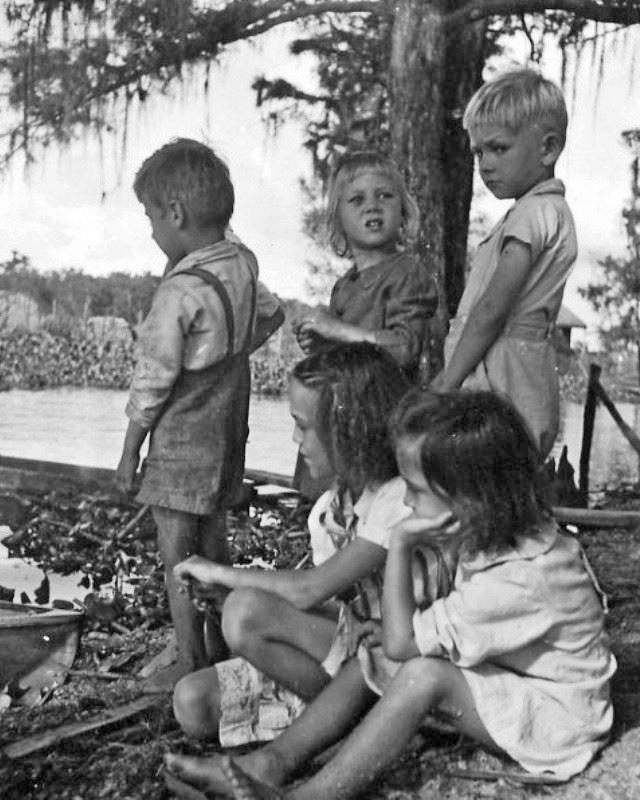
Figure 1.--These are Cajun children in Louisiana during 1946. The origin of the Cajuns, a rare French populatin in American are the canadian Acadiansexpelled by th British during the French and Indian War. |

|
France is one of the few European countries that did not participate significantly in the emigant movement to America. One of the few French communities in the United States are the Louisiana Cajuns. The origns of the Cajuns are the Acadians.
The British during the French and Indian War expelled the Acadians from the Atlantic Provinces (Maritimes) of New France (Canada) (1755) Some of the refugees made their way to New Orleans, at the time a Spanish outpost. Many Acadians who were deported to France did not feel that France was their home. Many lived for years in poverty there until the opportunity to go to Louisiana arose. While now Spanish, Louisiana before the French and Indian war had been French. After years of preparations, Spain paid for more than 1,600 Acadians to travel from France to Louisiana, which was now a Spanish colony. As a result of the War of the Spanish Sucession, a Bourbon was placed on the Spanish Crown. As a result, until the French Revolution the Spanish and French were often united against the British.Some Acadian exiles had already made their way to Louisiana , believing that it was still French, only to discover upon their arrival that it belonged to Spain. Although the Spanish treated the Acadians quite generously, allowing them to speak French and to practice Roman Catholicism, many Acadians felt abandoned by France. The Spanish wanted the Acadians to move to Louisiana which had only a small population. The Spanish believed that a larger Catholic population and settlement would protect against an English invasion. The journey to Louisiana was arduous. There were outbreaks of smallpox aboard some ships. Many who arrived safely in New Orleans took about a month to recuperate. The Acadians had wanted to settle around the Mississippi River where many had relatives. They found, however, that the best lands had already been taken, and they migrated to what is now southwestern Louisiana, where good land was available. About 22 parishes in this section of Louisana form a triangle which is known today as the "Acadian triangle". Louisiana Cajuns today are thus descendents of the French Acadians. Longfellow's great poem "Evageline tells the story of one Cajun community--St. Martiville, Louisiana. The Louisiana Cajuns were part of the force that General Andrew Jackson assembled to defeat a sizeable British invasion force trying to seize New Orleans (1815). Where does the name "Cajun" originate? Acadian would by fropping the "A" be elided into "Cajun". During the 18th and 19th centuries, "Cajuns" came to be identified as the French-speaking people of rural southwestern Louisiana. The descendants of these rural people became the working class of their region. Changes in social and economic circumstances of these families created a nostalgia for a romanticized version of the past. "Cajun" once was considered an insulting term, but today it is a term of pride among many in Louisiana. The mascot for the University of Louisiana-Lafayette sports teams is the "Ragin' Cajuns"!
Navigate the Children in History Website:
[Return to Main Expulsion of the Acadians page]
[Return to Main Seven Years War page]
[Return to Main specific 18th century war essay page]
[Return to American ethnicity: French]
[Introduction]
[Animals]
[Biographies]
[Chronology]
[Climatology]
[Clothing]
[Disease and Health]
[Economics]
[Geography]
[History]
[Human Nature]
[Law]
[Nationalism]
[Presidents]
[Religion]
[Royalty]
[Science]
[Social Class]
[Bibliographies]
[Contributions]
[FAQs]
[Glossaries]
[Images]
[Links]
[Registration]
[Tools]
[Children in History Home]
